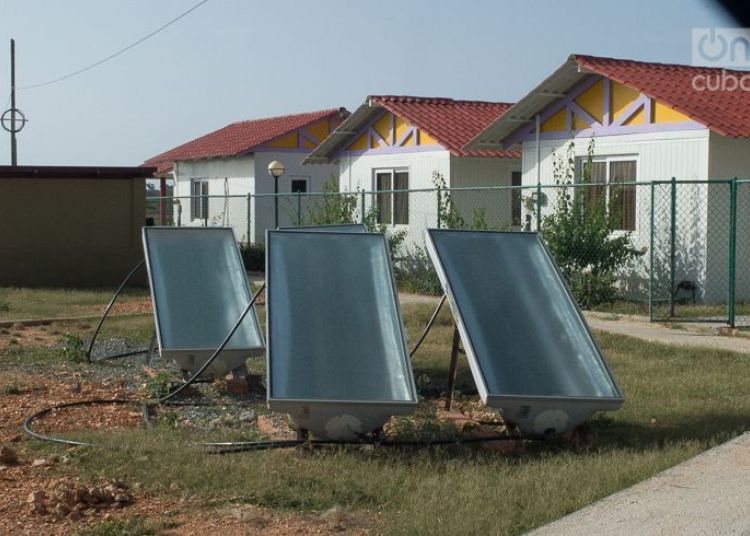Cubans will be able to purchase equipment that uses renewable energy sources, produce electricity for self-consumption, and sell their surplus to the island’s National Electric System, according to Decree-Law 345, published this Thursday in the Gaceta Oficial.
The regulations include an instruction from the Central Bank of Cuba to its commercial entities to grant credits to people who wish to buy solar heaters and photovoltaic solar systems.
It also stipulates that the credits will be granted in Cuban pesos (CUP) up to 100% of the value of the equipment, and their repayment terms will respond to the risk analysis carried out by the bank based on the applicant’s payment capacity.
The retail sales of the equipment and spare parts will be carried out in a network of selected establishments, including currency collection stores, as provided by the Ministry of Domestic Trade. The regulations set a one-year commercial warranty for solar heaters and ten years for photovoltaic systems.
Installation and assembly will be carried out by state entities.
The Decree-Law establishes the regulations for the development of renewable sources and the efficient use of energy, with the objective of increasing the participation of these sources in the Cuban energy generation matrix and the progressive replacement of fossil fuels.
With the new legal norm, which was approved by the Council of State and signed by former President Raúl Castro in March 2017―and that is only now published in the Gaceta Oficial―, the Cuban government is committed to “diversifying the structure of power generation,” and “increasing efficiency and energy savings.”
Resolution 123, of the Ministry of Energy and Mines, provides that the Electric Union (UNE) has the obligation to buy all the electric energy that is delivered to the National Electric System by independent producers.
Cuba construirá central bioeléctrica y parque eólico con financiación india
In order to establish energy prices, which should incentivize independent production, the cost of avoiding fossil fuel generation, and the setting of differentiated tariffs in the schedules of maximum demand of the National Electric System will be taken into account, among other elements, the regulations indicate.
In addition, maximum power limits will not be established for photovoltaic systems installed in the residential sector.
Cuba aims to increase the contribution of renewable energy sources in power generation to no less than 24% of the total in 2030.
Decree-Law 345’s priorities include “encouraging investment and research in that sector,” in addition to “developing the production of equipment, parts and spare parts by the national industry.”










